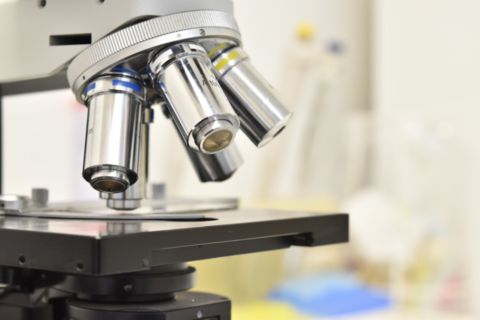A project aimed at finding a cure for the coronavirus infection has received a BRICS grant. The research is carried out by the SUSU scientists jointly with their foreign colleagues. They will be testing the efficiency of long-known drugs, as well as assessing the effect of concentrated natural substances on fighting against the disease.
Finding a cure for the coronavirus has remained a major medical problem over the past year. Scientists create drugs that can fight the infection, or are searching for drugs with suitable properties among those already known and widely used. The second method is preferable because it gives the quickest possible result. It may take several years to test the developed drugs since in addition to the positive effect on the body, it is necessary to track side effects. According to scientists, such consequences may appear even decades later.
A team of researchers consisting of the scientists from South Ural State University and their colleagues from the Federal University of Pernambuco, Brazil; Amity University, Delhi University, India; University of KwaZulu-Natal, Republic of South Africa, are engaged precisely in drug repositioning and testing the promising compounds against the main protease and RNA-dependent RNA polymerase SARS-CoV-2. This promising project has been recognized in a competition held by the organisations participating in the BRICS Science, Technology and Innovation Framework Program and by the Russian Foundation for Basic Research. A total of 8 projects out of 111 have won the support of the RFBR.
“Thousands of research groups around the world are working on the COVID-19 problem, and the fact that we have received a grant demonstrates that SUSU is one of the leaders in this field. Now our team has two years to demonstrate the result. According to our plans, the first part of the project will be completed in 2021. The funding for the project will amount to five million roubles annually, what will help to carry out all the necessary tests and use the results of our research in medicine,” said Vladimir Potemkin, Head of the Research and Education Laboratory of Computational Modelling of Drugs.
Photo: V.А. Potemkin
Eight drugs contained in the DrugBank (a global database of substances already used in medical practice; all 13562 compounds are considered) and approved by the FDA (Food and Drugs Administration, USA) are now being studied by Indian and Brazilian scientists.
The list includes:
- Phthalocyanine, used to treat actinic keratosis, Bowen's disease, skin cancer and mycosis stage I or II;
- Fenebrutinib, used to treat non-Hodgkin's lymphoma and chronic lymphocytic leukaemia;
- R-428, used to treat lung cancer;
- Rimehepant, used to treat acute bilious blind headache;
- DB01897a, used as a prostaglandin D synthase inhibitor;
- Zk-806450, used as a serine-type endopeptidase inhibitor;
- Radotinib, used to treat myelogenous chronic leukaemia;
- Nilotinib, used to treat chronic myelogenous leukaemia.
The essence of the work by the researchers is biological testing whether these compounds are actually effective as antiviral agents and help in the treatment of the coronavirus.
The second part of the project, which has received the grant, is aimed at studying natural substances that are used in food (all 24594 compounds included in the Natural Products Atlas database are considered):
- 19-hydroxypenitrem A, isolated from fungi;
- 2', 3'-epoxymyrothecin A, isolated from fungi;
- Pitiryarubin A, isolated from yeast;
- Verrucarin Y, isolated from fungi.
They can fight viruses, but in small doses they do not have the desired effect. The scientists at SUSU have performed the calculations to find out the concentration of a substance that can work against the coronavirus infection. Now the team of researchers will have to check the prognosis at the Delhi University, India, in vitro, that is, on cultures of enzymes, in particular, protease and RNA replicase. At the University of Pernambuco, Brazil, they will examine the effect of concentrated substances on living infected organisms in vivo.
“We do not intend to be satisfied with what has already been achieved. As soon as the final results of these studies are obtained, our team is ready to start modifying the predicted drugs. After all, even an existing drug for Covid-19 can be replaced with a more active, less toxic one and with a shorter period of action,” commented Vladimir Potemkin.
When the efficiency of drugs and natural substances is proven, the research team will file a patent for the discovery and conclude a nondisclosure agreement. After that, the results of the team's work can be used when prescribing treatment for coronavirus patients.
South Ural State University (SUSU) is a university of digital transformations, where innovative research is conducted in most of the priority fields of science and technology development. In accordance with the strategy of scientific and technological development of the Russian Federation, the university is focused on the development of big scientific interdisciplinary projects in the field of digital industry, materials science, and ecology. In the Year of Science and Technology, it will take part in the competition under the Priority-2030 program. The university acts as a regional project office of the World-class Ural Interregional Research and Education Centre (UIREC).





_photo-resizer_ru.JPG)